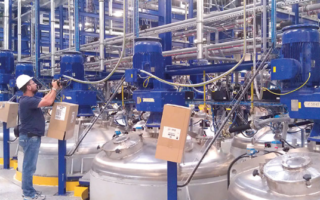Fixed Deposits (FDs) have long been a cornerstone of investment strategies for countless Indian investors. This is due to low-risk and assured returns. As a result, FDs serve as a vital savings tool, particularly for those looking to secure their financial future without exposing their capital to the uncertainties of the market. Let’s do fd interest rates comparison of various issuers, helping you chart your future growth with confidence and clarity.
Fixed Deposits are financial instruments where you can deposit a lump sum amount for a fixed tenor at a predetermined interest rate. These are usually offered by banks and NBFCs. The returns are guaranteed, making FDs an attractive option for risk-averse investors. They offer a range of benefits, including capital protection, predictable returns, and liquidity options through loans against FDs.
Current FD Interest Rates in India
As of May 2024, the interest rates offered on FDs by various issuers are quite competitive. Here is a look at some of the highest FD rates available:
|
Issuer |
Interest Rate (p.a.) |
|
DCB Bank |
8.05% |
|
IDFC FIRST Bank |
7.90% |
|
AU Small Finance Bank |
8.00% |
|
Utkarsh Small Finance Bank |
8.50% |
|
RBL Bank |
8.00% |
|
Bajaj Finance |
8.60% |
*Disclaimer: These rates are subject to change at the issuer’s discretion. Always check the latest rates on the official websites before booking.
Among these, Bajaj Finance stands out with the highest interest rate of 8.60% p.a., making it an attractive option for those looking for the best returns. Utkarsh Small Finance Bank and DCB Bank also offer competitive rates, at 8.50% p.a. and 8.05% p.a., respectively. Meanwhile, RBL Bank and AU Bank FD rates are also quite high, making them a great choice.
FD Interest Rates for Senior Citizens
Senior citizens often receive preferential interest rates on FDs, providing them with better financial security during their retirement years. Here are the senior citizen FD interest rates of all banks or NBFCs mentioned above:
|
Issuer |
Interest Rate (p.a.) |
|
DCB Bank |
8.55% |
|
IDFC FIRST Bank |
8.40% |
|
AU Small Finance Bank |
8.24% |
|
Utkarsh Small Finance Bank |
9.10% |
|
RBL Bank |
8.50% |
|
Bajaj Finance |
8.85% |
*Disclaimer: These rates are subject to change at the issuer’s discretion. Always check the latest rates on the official websites before booking.
Utkarsh Small Finance Bank offers an impressive 9.10% p.a. for senior citizens, followed by Bajaj Finance at 8.85% p.a. and DCB Bank at 8.55% p.a. These higher rates are designed to enhance the savings of senior citizens, ensuring a more comfortable post-retirement life.
Using an FD Interest Calculator
An FD interest calculator is an invaluable tool for investors, helping to estimate the returns on their deposits accurately. Here’s how you can use an FD interest calculator:
- Enter the Principal Amount: This is the lump sum you plan to invest
- Select the Interest Rate: Input the rate offered by the issuer
- Choose the Tenor: Specify the duration of the investment
- Compounding Frequency: For cumulative FDs, select how often the interest is compounded. Some calculators also allow you to check interest payouts for non-cumulative FDs.
- Calculate: The calculator will display the maturity amount and total interest earned
For example, let’s say you invest ₹1 Lakh in a Bajaj Finance FD at an interest rate of 8.60% p.a. for 3 years. Herein, the maturity amount will be ₹1,28,082, and the total interest earned will be ₹28,082. This calculation process may take quite some time and effort if done manually. However, it can be done within a few seconds with the help of an FD calculator. This helps in comparing different FD options to find the one that best suits your financial goals.
Tax Implications on FD Interest
Interest earned on FDs is taxable under the Income Tax Act, 1961. The interest income is added to your total income and taxed as per your tax slab. If the interest income from FDs exceeds ₹40,000 in a financial year (₹50,000 for senior citizens), a TDS of 10% is applied.
Additionally, you can claim a deduction under Section 80C on tax-saving FDs of up to ₹1.5 Lakhs each fiscal year. Understanding these tax implications is crucial for effective financial planning and maximising your net returns from FD investments.
Benefits of Investing in Fixed Deposits
Fixed Deposits offer several advantages that make them a preferred investment choice:
- Safety: FDs are considered one of the safest investment options, as they are not subject to market fluctuations
- Guaranteed Returns: The interest rate is fixed at the time of investment, ensuring predictable returns
- Flexibility: Investors can choose the tenor of their FD, ranging from a few months to several years
- Loan Against FD: Many banks and NBFCs offer loans against FDs, providing liquidity without breaking the deposit
Choosing the Right FD
When selecting an FD, consider the following factors:
- Interest Rates: Compare rates offered by different issuers to maximise your returns
- Tenor: Choose a tenor that aligns with your financial goals and liquidity needs
- Issuer’s Credibility: Ensure the issuer is reputable and financially stable
- Premature Withdrawal: Check the terms for premature withdrawal, as this can impact your returns
Researching FD interest rates across various issuers is essential for charting your future financial growth. By staying informed about the highest rates, understanding the benefits, and leveraging FD interest calculators, you can make well-informed decisions.
Whether you are a regular investor or a senior citizen, choosing the right FD can help you achieve your financial goals. Stay updated with the latest interest rates and explore different issuers to find the best FD options that suit your needs. This strategic approach will ensure that your investments yield the best possible returns, paving the way for a secure and prosperous financial future.




